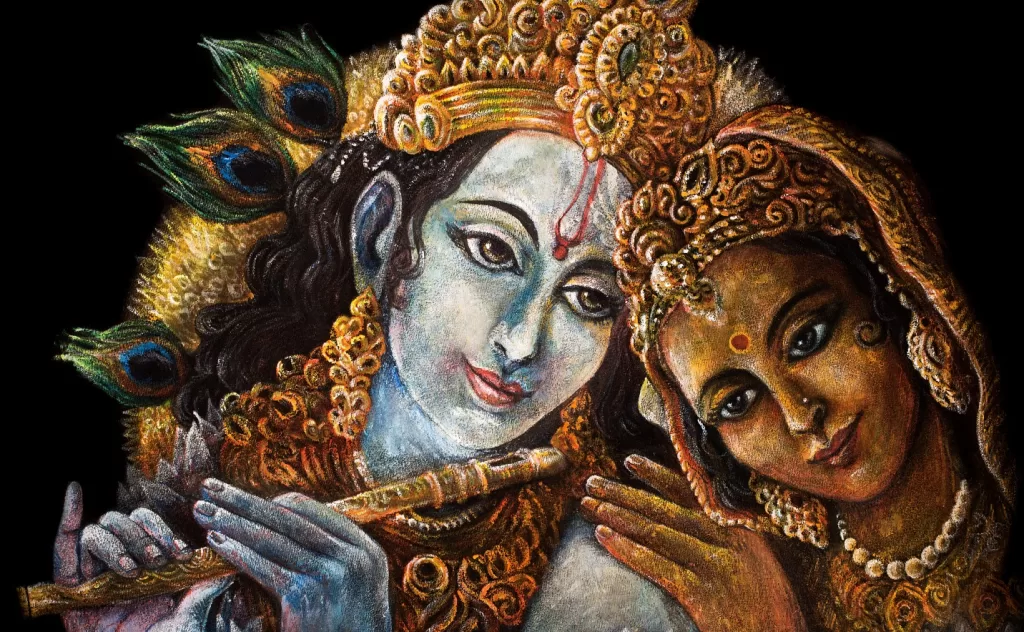What is Love?

Love is a mix of feelings and behaviours marked by closeness, passion, and commitment. It involves tenderness, intimacy, protection, attraction, affection, and trust.
Our history, literature, music, movies and even religion are alive with real or written love stories.
Love has inspired emperors to conquer, abdicate and kill. Couples have broken family and social ties to fulfil their passion. The theme of love is a constant that has inspired generations of poets, writers, musicians and mystics.
The intensity of love might shift throughout time. It is linked to many good feelings, like enjoyment, excitement, life satisfaction, and pleasure, but it can also lead to destructive emotions like envy and stress.
The Distinction Between Liking and Loving
Not all types of love are the same, and psychologists have recognized several sorts of love that people may experience, such as:
Friendship love entails liking someone and having a certain level of intimacy.
Strong feelings of attraction characterize infatuation without a sense of commitment. It usually happens early in a relationship and can lead to a more profound love.
Passionate love is marked by strong longing and attraction. It often involves seeing the other person as perfect and needing to be close to them all the time.
Compassionate love involves trust, tenderness, intimacy, and commitment.
Unrequited love occurs when one person loves another but does not reciprocate those feelings.
Is Love Biological or Cultural?
Some people believe that love is one of the most powerful human emotions. Despite being one of the most researched behaviours, it remains a mystery. Researchers, for example, disagree on whether love is a biological or cultural phenomenon.
It is most likely that both biology and culture have an impact on love. Although hormones and genetics play a role, our personal beliefs about love influence how we express and experience love.
Some scholars feel that love, like happiness or anger, is a primary human emotion. Others contend that social expectations and constraints play a role in this cultural phenomenon.
Research has shown that romantic love exists in all cultures, which suggests that love has a biological basis. It is human nature to look for and find love. But culture can tremendously impact how people think about, experience, and express romantic love.
Is Love a Feeling?
Psychologists, sociologists, and scholars have different perspectives on defining love. Many people say it’s not an emotion in the usual sense but rather a need from the body. “Love is a physiological motive like hunger, thirst, sleep, and sex drive,” explains psychologist and biologist Enrique Burunat. The American Psychological Association, on the other hand, defines it as “a complicated feeling.” Others distinguish between primary and secondary emotions and place love in the latter, claiming that it is derived from a combination of primary emotions.
Dalai Lama said, “The greatest inner tranquillity comes from the development of love and compassion. The more we care for the happiness of others, the greater is our sense of well-being.”
How to Put Love into Action
There is no one way to practise love. Every relationship is unique, and each individual brings their history and needs. You can demonstrate your love to those you care about by doing the following:
- Be willing to be exposed
- Be ready to forgive
- Try your best and be ready to apologize if you make a mistake
- Show them that you care
- Pay attention to what they have to say
- Make spending time with the other person a priority
- Love gestures and acts of compassion should be reciprocated
- Appreciate and acknowledge their positive characteristics
- Share things about yourself
- Display affection
- Make it unconditional
The Impact of Love
Love, attachment, and affection significantly impact happiness and quality of life. Dalai Lama said, “The greatest inner tranquillity comes from the development of love and compassion. The more we care for the happiness of others, the greater is our sense of well-being.”
Loving relationships have been associated with the following:
- Reduced risk of heart disease
- Reduced chance of death after a heart attack
- Improved health practises
- Improved longevity
- Reduced stress
- Reduced risk of depression
Tips for Cultivating Love
Deep degrees of trust, commitment, and intimacy are characteristics of long-lasting relationships. You can help create loving connections by doing the following:
Practise loving-kindness meditation (LKM): Loving-kindness meditation is a practice that has been shown to make people feel good and improve their relationships with other people. It is commonly used to develop self-acceptance and reduce stress. LKM meditation is practised while thinking about someone you love or care about, focusing on pleasant sensations and your desire for their happiness and well-being.
Communicate. Everyone has distinct requirements. Talking about your wants and the needs of your loved ones is the most excellent method to ensure they are satisfied. Making someone else feel loved is transmitting that love through words and actions. Showing that you care, making them feel unique, telling them they are appreciated, and doing things for them are all ways to do this.
Handle conflict healthily. Never arguing is not always a sign of a healthy relationship; more often than not, it indicates that people prefer to avoid an issue rather than discuss it. Rather than avoiding conflict, focus on working through challenges in healthy ways to take a relationship ahead in a positive direction.
Possible Drawbacks
As Shakespeare once remarked, the path of love only sometimes runs smoothly. There will always be challenges, disagreements, misunderstandings, and disappointments in any relationship, which can cause sadness or heartbreak.
Love is linked to many good feelings, but is associated with many negative emotions. Some of the potential hazards of falling in love are as follows:
- Anxiety \Depression
- High-Stress Levels
- Jealousy
- Obsessiveness
- Possessiveness
- Sadness
Even though it’s normal for people to feel some destructive emotions because of love, it can be a problem if the bad feelings outweigh the good ones or get in the way of either person’s ability to function normally.
As Dolly Parton put it lightly, “Love is something sent from heaven to worry the hell out of you.”
Relationship counselling can help couples struggling with misunderstandings, stress, or emotional concerns.

The Evolution of Love
Love has just recently been a scientific topic. Sigmund Freud once said it was up to “the creative writer to represent for us the required conditions for loving” to study love. “As a result, it is unavoidable that science should be concerned with the same materials whose handling by artists has given mankind enjoyment for hundreds of years,” he continued. As Paul McCartney sang, “All you need is love.”
After Freud’s statements, love research has evolved immensely. Nonetheless, early investigations into the nature and causes of love were heavily criticized. Throughout the 1970s, U.S. Senator William Proxmire agitated against love researchers, calling their studies a waste of taxpayer money.
Despite early resistance, research has shown that love is vital to child growth and adult health.
If you face repeated strains in your relationships, seek a relationship counsellor to resolve conflict. Click www.hopetrustindia.com for an online or in-person session with an expert.